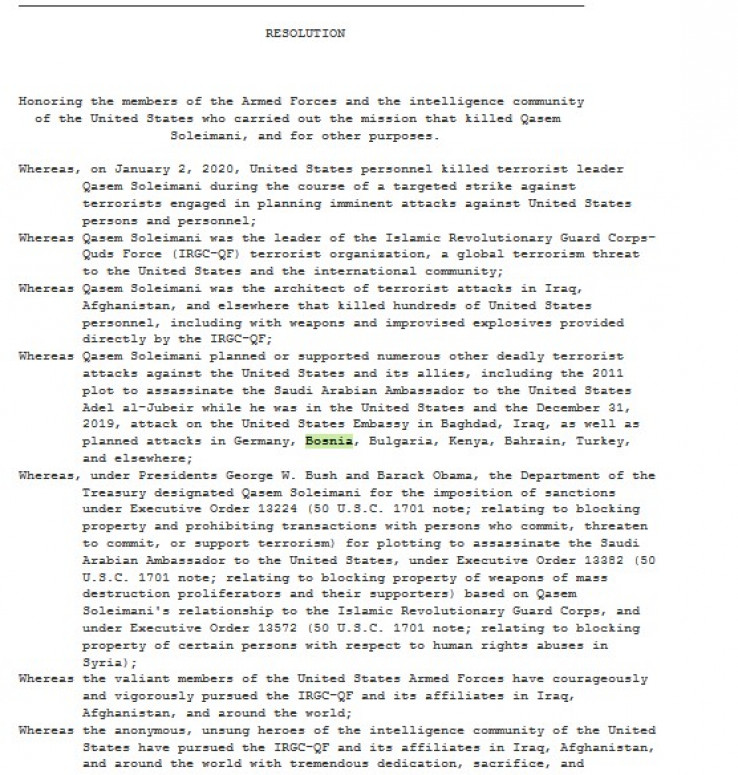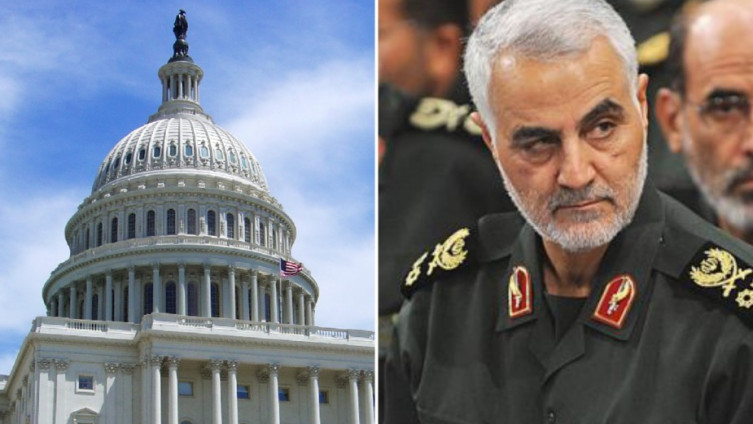The Bosnian Train and Equip Program: A Lesson in
Interagency Integration of Hard and Soft Power - by Christopher J. Lamb, with Sarah Arkin and Sally Scudder, (Strategic Perspectives 15, Center for Strategic Research
Institute for National Strategic Studies
National Defense University - INSS, 2014)
"During the Presidential campaign of 1992, Bill Clinton promised to commit his administration to resolving the situation in Bosnia by bombing the Serbs if necessary. Shortly after
taking office in early 1993, President Clinton commissioned a high level review of the Bosnia
policy and then chose a “lift and strike policy”—lifting the arms embargo and employing
limited air strikes against Serb targets. Staunch opposition from European allies effectively
reversed that decision a month later. Congressional skepticism about military interventions
also constrained the administration. In October 1993 President Clinton suffered a major foreign policy reversal as the humanitarian intervention in Somalia degenerated into large-scale
fighting with significant American casualties. Shortly thereafter, the United States suffered
another embarrassment in Haiti when anti-democratic forces forced a U.S. vessel carrying
civic action teams to withdraw from the country. These events reinforced reluctance to intervene in a situation as complex as Bosnia.
With congressional support weak and European
opposition strong, the United States and NATO settled for targeted, minor airstrikes against
Serb positions in November 1994.
The Clinton administration also explored diplomatic options for conflict resolution and
scored a success by brokering an agreement to end the Muslim-Croat conflict and create a
Muslim-Croat Federation. In March 1994 the Washington Agreement formally
brought the two warring ethnic factions together as a single political and geographic entity,
divided into 10 cantons under the auspices of UNPROFOR. All government posts were to be
split evenly between Croats and Bosniaks. A year later, however, President Clinton’s chief negotiator for Bosnia, Ambassador Richard Holbrooke, observed that the Federation “existed only
on paper” and that “friction between the Croats and the Muslims was enormous.” The conflict dragged on into the spring of 1995, at which point it had already claimed
100,000 lives and produced more than a million refugees. On both ends of the U.S. political
spectrum, concerns about the future of NATO as a strategic alliance and outrage over gross human rights abuses began to soften resistance to intervention.
Foreign policy leaders such as
Holbrooke believed “America’s post-World War II security role in Europe was at stake,” and
news magazines with pictures of emaciated prisoners recalling Nazi concentration camps began
to swing public sentiment in favor of some kind of intervention. In March the New York Times
reported that a CIA report had concluded that “90 percent of the acts of ethnic cleansing were
carried out by Serbs and that leading Serbian politicians almost certainly played a role in the
crimes.” Over time U.S. Balkans policy was influenced less by the impression that all sides
bore some responsibility and more by the view that Slobodan Milosevic was a “new Hitler” promoting nationalist aggression. He appeared determined to form a greater Serbia by using his superior military forces to annex territory in Bosnia and Croatia where Serbs lived and by
“expelling or killing all inhabitants who were not Serbs, most egregiously [Bosniaks].” Increasing numbers of U.S. Government officials, members of Congress, and prominent newspaper
editorialists called for action to help the persecuted Bosniak population. Assistant Secretary of State for European Affairs Richard Holbrooke and an interagency
team conducted shuttle diplomacy in the Balkans to find a way forward toward a negotiated
settlement, but Serb military advantages diminished incentives for compromises.
One event
in particular convinced Holbrooke and other Americans that more military force would be
required to bring the Serbs to the negotiating table. In May 1995 NATO responded to Serb attacks on UN safe zones with “pinprick” air strikes as it did the previous year. This time, however,
the Serbs took 350 UN peacekeepers hostage in response. Holbrooke encouraged the Clinton
administration to increase the bombing, but the Europeans, particularly those countries whose
soldiers were taken hostage, were opposed to using more airpower. The Clinton administration
settled on a policy of containment and humanitarian relief while it worked other options quietly, including ways to shift the military balance among the three warring factions.
While formally abiding by the UN arms embargo, which Clinton believed “unfairly and
unintentionally penalized the victims in this conflict,” the United States tacitly allowed arms
to flow to the Bosnians, mostly from majority-Muslim countries in the Middle East. U.S. diplomats made no effort to stop Croatia from allowing military supplies to reach Bosnia through
Croatian territory, including transit of arms from Iran to Bosnian Muslim forces, thus circumventing the UN embargo and making an exception to the U.S. policy of isolating Iran. In addition the United States supported Croatia’s efforts to build up its military forces. The Department
of State quietly approved nonlethal assistance to the Croatian Ministry of Defense through
U.S. private sector military advisors. The U.S. company, Military Professional Resources, Inc.
(MPRI), which was led by such notables as former U.S. Army Chief of Staff Carl Vuono, assisted
the Croatian Ministry of Defense.
During this period the United States lobbied its European allies for more forceful intervention, arguing that diplomacy would have to be supported by military force. Since Holbrooke’s
mission took place against a backdrop of continuing violence, the United States could increasingly
emphasize the moral case for intervention. Notorious mass killings of Bosniak civilians, including
a mortar attack against the Markale marketplace in August 1995, increased support for intervention.
The unquestionable tipping point, however, was the appalling massacre of more than 8,000
Bosniak men sheltered in the UN “safe zone” of Srebrenica in July 1995. Amidst widespread outrage over the horrific event, U.S. policymakers argued that such merciless disregard for human life and contempt for international peacekeeping forces called the continuing relevance of NATO into
question and jeopardized transatlantic security relations.
With European support for more forceful action growing, two August 1995 military developments finally pushed the Serbs to the negotiating table. First, with acquiescence from the
United States and other allies, Croatia launched punishing offensives against the Serbs. The
Croatian Army evicted Serb forces from the self-declared Republic of Serbian Krajina, producing a large number of Serb civilian casualties and refugee flows in the process. Then, operating
in concert with Bosnian Army units around Bihac, Croatian forces routed the Serbs who were
occupying other parts of Croatia and Bosnia. American leaders attempted to constrain Croatia,
fearing the Croats, flush with success, would go too far and ignite a larger conflict.33 But both
Holbrooke and Clinton would write in their memoirs that Serb military reverses were essential for bringing the Serbs to the negotiating table.34 In addition to the successful Croatian and
Bosniak ground initiatives, NATO launched air strikes against the Republika Srpska and Serb
targets on August 30 in Operation Deliberate Force. The Serbs stopped their attacks against Sarajevo after 11 days of air strikes."










